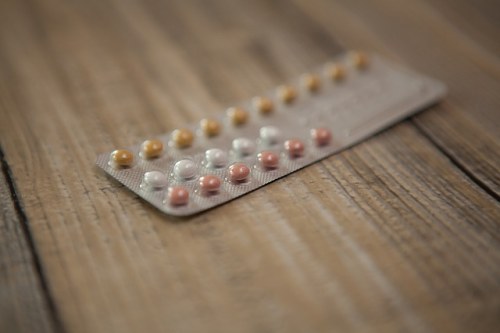 When we hear about menopause, it’s often about the symptoms and issues associated with declining levels of oestrogen and progesterone.
When we hear about menopause, it’s often about the symptoms and issues associated with declining levels of oestrogen and progesterone.And Hormone Replacement Therapy (HRT) is often prescribed to replace our oestrogen and/or progesterone hormones that we may be losing due to the menopause.
And while the right kind of HRT can be life changing (and safe) for many women, it’s certainly not the only solution!
1/ the symptoms of menopause are not just down to two hormones. There are lots of other hormones at play during perimenopause and beyond (we have over 100 of them!), and if you have imbalances in any of those, then HRT won’t be able to help.
2/ If you don’t address the fundamentals of your health, ie your diet and lifestyle, HRT alone will not help you live a healthy and good quality life as you age.
When you give your hormones what they need to work properly, you are much more likely to have a smoother ride through the menopause and beyond.
This is my Happy Hormone Code – EAT, REST, CLEANSE & MOVE.
Step 1 – EAT
Hormones need a variety of nutrients to function properly, so it’s important to eat whole, nutrient dense foods including protein, healthy fats and complex carbohydrates. Lots of vegetables at each meal will help to crowd out not so healthy foods, and supply plant nutrients and fibre. Healthy fats (including avocado, oily fish, olive oil, nuts, seeds) will help to keep your blood sugar stable and feeling full between meals.
Specific foods that can help with oestrogen balance include organic soy and flaxseeds (they contain plant like oestrogens), and cruciferous vegetables (broccoli, cauliflower, cabbage, kale, etc) that support liver detoxification.
Switching off your stress every day is vital for your hormones. Too much cortisol can really exacerbate menopause symptoms such as anxiety, brain fog, mood swings, depression, fatigue, insomnia and weight gain.
Make sure to prioritise some self care every day, even if for just a few minutes – whether it’s a bit of mindful meditation, reading a book, listening to music, taking a walk in nature, cooking, dancing, yoga, meditation or just relaxing.
Certain chemicals that we are exposed to in our food and everyday products can disrupt our hormones, especially oestrogen. By minimising our exposure to Endocrine Disrupting Chemicals, we can avoid too much disruption.
There are 3 things that we can to avoid some of the worst chemicals;
Staying active is key to hormone balance, but it’s important to find a balance that’s right for you. Too much sitting is bad for you but over-exercising can be too much stress on the body particularly if you’re already tired or stressed out. Being more gentle on yourself at this time of life is helpful. Yoga, Pilates and walking are all very good for your hormones!
And aim to sit less and move more in your daily life.
Even if your diet is super healthy, you will need to consider supplementing to ensure you’re getting all the nutrients you need during menopause.
That’s because as we get older we tend to be nutrient deficient in key vitamins and minerals. We don’t necessarily absorb our nutrients from food as well as we used to. Stress can use up certain nutrients very quickly, and we may not always have access to the best diet.
Key supplements to consider are; Vitamin D3 (especially during the winter), a good multivitamin and mineral (with active B vitamins and minerals), Magnesium, Vitamin C and a good quality fish oil (with EPA/DHA).
There are also many different botanical formulas that you can try to help ease menopause symptoms. These include red clover, black cohosh, sage, hops, dong quai and soy isoflavones.
Whether you choose to take HRT or not, adopting these key diet and lifestyle principles will help to keep your hormones balanced and healthy into your old age.
 Nicki Williams is a award-winning nutritionist and leading expert in women’s health and hormones.
Nicki Williams is a award-winning nutritionist and leading expert in women’s health and hormones.
Nicki is the founder of Happy Hormones for Life, helping women of all ages to rebalance their hormones, reclaim their health and feel better than ever. She is also the author of the top-selling book It’s Not You, It’s Your Hormones – The Essential Guide for Women Over 40 to Fight Fat, Fatigue and Hormone Havoc, available on Amazon. Nicki also runs the Happy Hormones Podcast, the go-to resource for all things female health and hormones.
